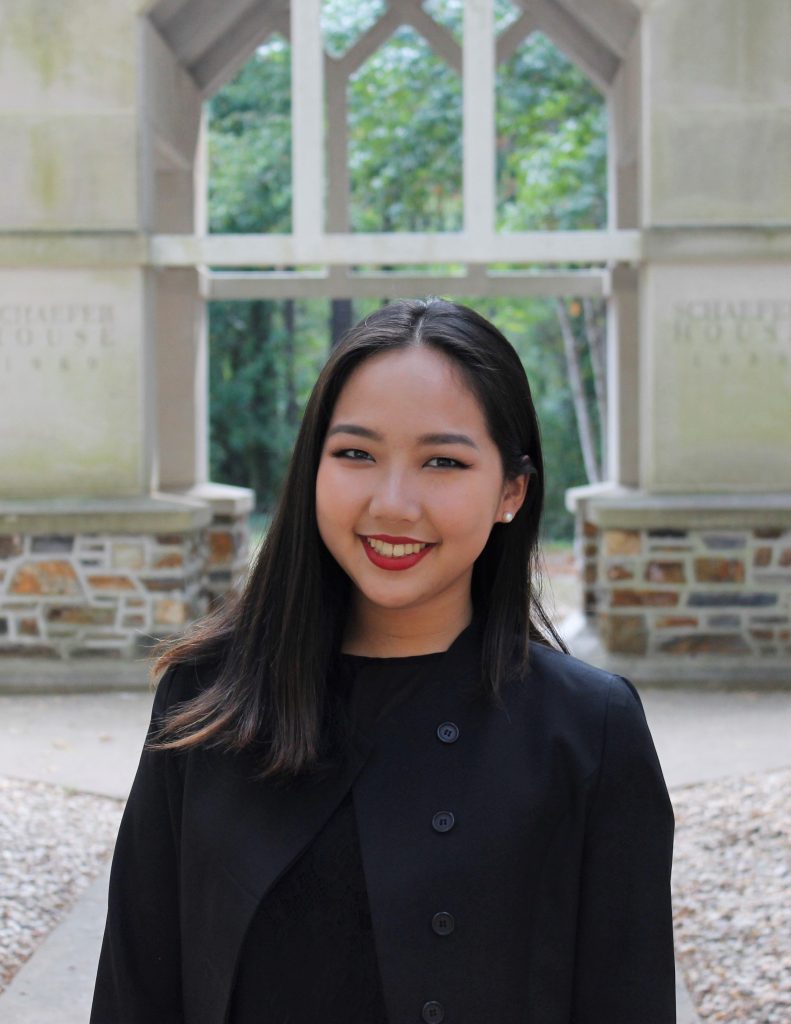Erin is a Public Policy major. At Duke, she was an RA, MeToo Monologues co-director, and an executive member of the Duke Swing Dance Performance Club. As a member of the Hart Leadership PEP (Political Engagement Project) Fellows, Erin was able to produce an audio documentary called I Exist which explored the implications of unethical representation for immigrants. She was also an undergraduate member of the Bass Connections project SALUD (Scholar Academy for Leaders United for Diversity) where she worked with Latinx youth pursuing post-secondary education and health professions. In 2019, she participated in DukeEngage South Korea, teaching English to multicultural students and North Korean youth in Seoul. In the summer of 2020, she worked at the ACLU (American Civil Liberties Union) of Georgia as a Policy Fellow working on criminal justice and election reform. After graduation, she plans to work in the social justice sector for a couple of months before she begins law school next fall at the Georgetown University Law Center.
Honors Thesis:
‘Fires From Across the River’: An analysis of American racial discourse in the Korea Daily and amongst its readers
Faculty Advisor: Professor Gunther W. Peck
Abstract: The COVID-19 pandemic and the resurgence of the Black Lives Matter movement in 2020 highlight the importance of racial discourse. In the age of social distancing and technology, new media serves as the platform for understanding these conversations about race and race relations. Using Korean-Black relations in the United States and the Black Lives Matter movement as a proxy for understanding American racial discourse, this thesis poses the question: How do Koreans and Korean Americans situate themselves in American racial discourse in new media? A content and discourse analysis of the Korea Daily’s news coverage and its readers’ discussions about the Black Lives Matter movement and protests were conducted to answer this question. Parts of Korea Daily racial discourse are consistent with dichotomous ‘Black versus White’ and ‘supportive versus critical’ frameworks in American racial discourse research. However, the nuances in Korean American racial discourse demonstrate that binary discourse frameworks are flawed and incomplete. Additionally, this thesis posits that neutrality as a position in racial discourse is complicated by distinctive relationships and histories between different ethnic and racial groups. This thesis concludes that Koreans and Korean Americans are not situating themselves in American racial discourse, but they are actively creating and sustaining it in ways that have not been analyzed prior to this thesis. Thus, future research on racial discourse and the Black Lives Matter movement should be conducted in the context of interethnic and interracial relationships outside of the Black-White racial dichotomy.

